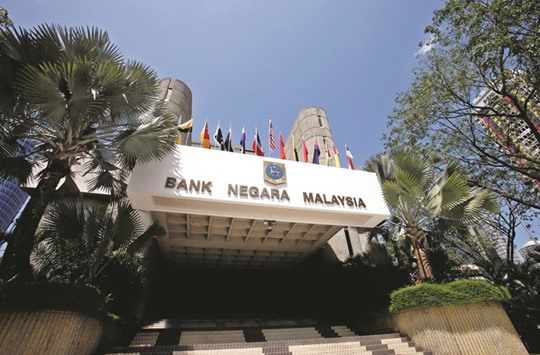Malaysia’s central bank kept key rates steady at a policy review yesterday, the first chaired by its new governor, saying it expects domestic consumption and growth to pick up this year.
Bank Negara Malaysia (BNM) left its overnight policy rate (OPR) at 3.25%, as widely expected.
“At the current level of the OPR, the stance of monetary policy is accommodative and supportive of economic activity,” the central bank said in a statement.
Southeast Asia’s third-largest economy has posted five quarters of declining growth due to weak exports and tepid domestic demand, but improved commodities production may lend support in the second half.
The central bank said it expects the economy to grow 4%-4.5%, slower than 5% last year, on continued weakness in global commodity and energy prices.
BNM said domestic demand will continue to be a key economic driver, supported by growth in wages and employment and additional disposable income from measures included in the government’s 2016 Budget revision in January.
Economists said the central bank will keep its options open with no pressing need to ease now, despite falling inflation.
“The situation they (BNM) are in now is that growth is holding up, so there is no strong reason to cut the rate,” said Nomura analyst Brian Tan.
Eleven of 12 economists in a Reuters poll had forecast no change to the policy rate with one economist expecting a 25-basis-point cut.
The central bank last revised the benchmark rate in July 2014, when it was raised by 25 basis points from 3% to curb rising household debt.
Inflation averaged 3.4% in the first quarter, and BNM expects it to trend lower for the rest of the year due to low energy and commodity prices and overall tepid global inflation.
Central bank governor Muhammad Ibrahim officially took over on May 1 from Zeti Akhtar Aziz. The appointment of the central bank veteran was welcomed by markets anxious about the country’s economic and political problems.
Malaysian Prime Minister Najib Razak faces political pressure over a financial scandal tied to state-owned 1Malaysia Development Berhad (1MDB) and economic challenges that have not been seen since the 1997-1998 Asian financial crisis.
The ringgit, hit by outflows, was Asia’s worst performing currency last year, and could again face pressure when the US Federal Reserve raises rates and if Malaysia’s political problems take a turn for the worse.

A general view of the headquarters of Malaysia’s central bank, Bank Negara Malaysia, in Kuala Lumpur. The bank yesterday left its overnight policy rate at 3.25%, as widely expected.
